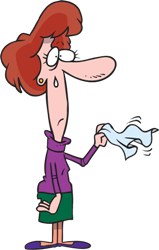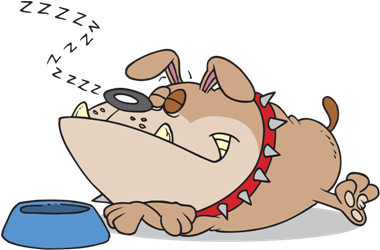Tag Questions
What is a tag question?
Click Here for Step-by-Step Rules, Stories and Exercises to Practice All English Tenses
A tag question is a sentence with a small part at the end that makes it a question.
For example:

This is a statement, not a question.
Now we add a small part at the end of it:

Now this sentence is a question. We call it a tag question.
The little part at the end (after the comma) is called a question tag.
(A tag is a word or phrase that is added to a sentence.)
Why do we need these question tags?
We use questions tags (such as "don't you?", "isn't it?") to turn
statements into questions, or to check that a statement is correct.It's like saying, "Am I right?" or "Is that correct?"
Using question tags can help you sound more natural in English.
Tag question rules
Positive statements
In most cases, the helping verb (or BE verb) from the positive statement is repeated in the tag and changed to negative.Example sentences:
| Statement:
Brenda is
sad. Question tag: isn't she? Tag question: Brenda is sad, isn't she? |
 |
| Statement: Dinner
is
ready. Question tag: isn't it? Tag question: Dinner is ready, isn't it? |
 |
| Statement: You
are
good friends. Question tag: aren't you? Tag question: You are good friends, aren't you? |
 |
| Statement: I
will
be fine. Question tag: won't I? Tag question: I will be fine, won't I? |
 |
| Statement: You
can
handle it. Question tag: can't you? Tag question: You can handle it, can't you? |
 |
| Statement: She
really
must
get some sleep. Question tag: mustn't she? Tag question: She really must get some sleep, mustn't she? |
 |
| Statement: I
should
give it back. Question tag: shouldn't I? Tag question: I should give it back, shouldn't I? |
 |
| Statement: You
do
feel nervous. Question tag: don't you? Tag question: You do feel nervous, don't you? |
 |
If there is no helping verb in the statement, then we usually use "don't":
| Statement: You
work
hard. Question tag: don't you? Tag question: You work hard, don't you? |
 |
| Statement:
Lucas
loves his father. Question tag: doesn't he? Tag question: Lucas loves his father, doesn't he? |
 |
Negative statements
In most cases, the helping
verb (or BE
verb) from the negative statement is repeated in the tag and
changed to positive.Example sentences:
| Statement:
Brenda isn't
happy. Question tag: is she? Tag question: Brenda isn't happy, is she? |
 |
| Statement: Dinner
isn't
ready. Question tag: is it? Tag question: Dinner isn't ready, is it? |
 |
| Statement: You
aren't
strangers. Question tag: are you? Tag question: You aren't strangers, are you? |
 |
| Statement: I
won't
be fine. Question tag: will I? Tag question: I won't be fine, will I? |
 |
| Statement: You
can't
handle it. Question tag: can you? Tag question: You can't handle it, can you? |
 |
| Statement: She
really
mustn't
stay up so late. Question tag: must she? Tag question: She really mustn't stay up so late, must she? |
 |
| Statement: I
shouldn't
keep it. Question tag: should I? Tag question: I shouldn't keep it, should I? |
 |
| Statement: You
don't
look so good. Question tag: do you? Tag question: You don't look so good, do you? |
 |
Note that words such as "never" make the statement negative, so:
| Statement:
Bobo never
barks. Question tag: does he? Tag question: Bobo never barks, does he? |
 |
Tag questions exercises
Tag questions exercises: Practice different kinds of tag questions: adding tag questions to sentences with the verb BE, sentences in the simple present tense, and sentences with modal verbs (positive and negative sentences). Check your answers automatically.
Practice tag questions with the verb BE in our course "English Grammar Exercises TO BE".
Tag question summary table
| Statement | Question tag |
| Positive ( + ) | Negative ( - ) |
| The movie is long, | isn't it? |
| The kids are sleeping, | aren't they? |
| We will win, | won't we? |
| She must be right, | mustn't she? |
| He should be home, | shouldn't he? |
| Negative ( - ) | Positive ( + ) |
| The movie isn't long, | is it? |
| The kids aren't sleeping, | are they? |
| We will not win, | will we? |
| She must not be right, | must she? |
| He should not be home, | should he? |
Get Updates, Special Offers, and English Resources
Download your FREE GIFT (the first two chapters of
English Short Stories Book and Workbook)
as soon as you join!

By submitting your email, you consent to receiving updates and newsletters from us and to the sharing of your personal data with third parties for the purposes of sending you communications. We will not spam you. You can unsubscribe at any time. For more information, please see our privacy policy.





